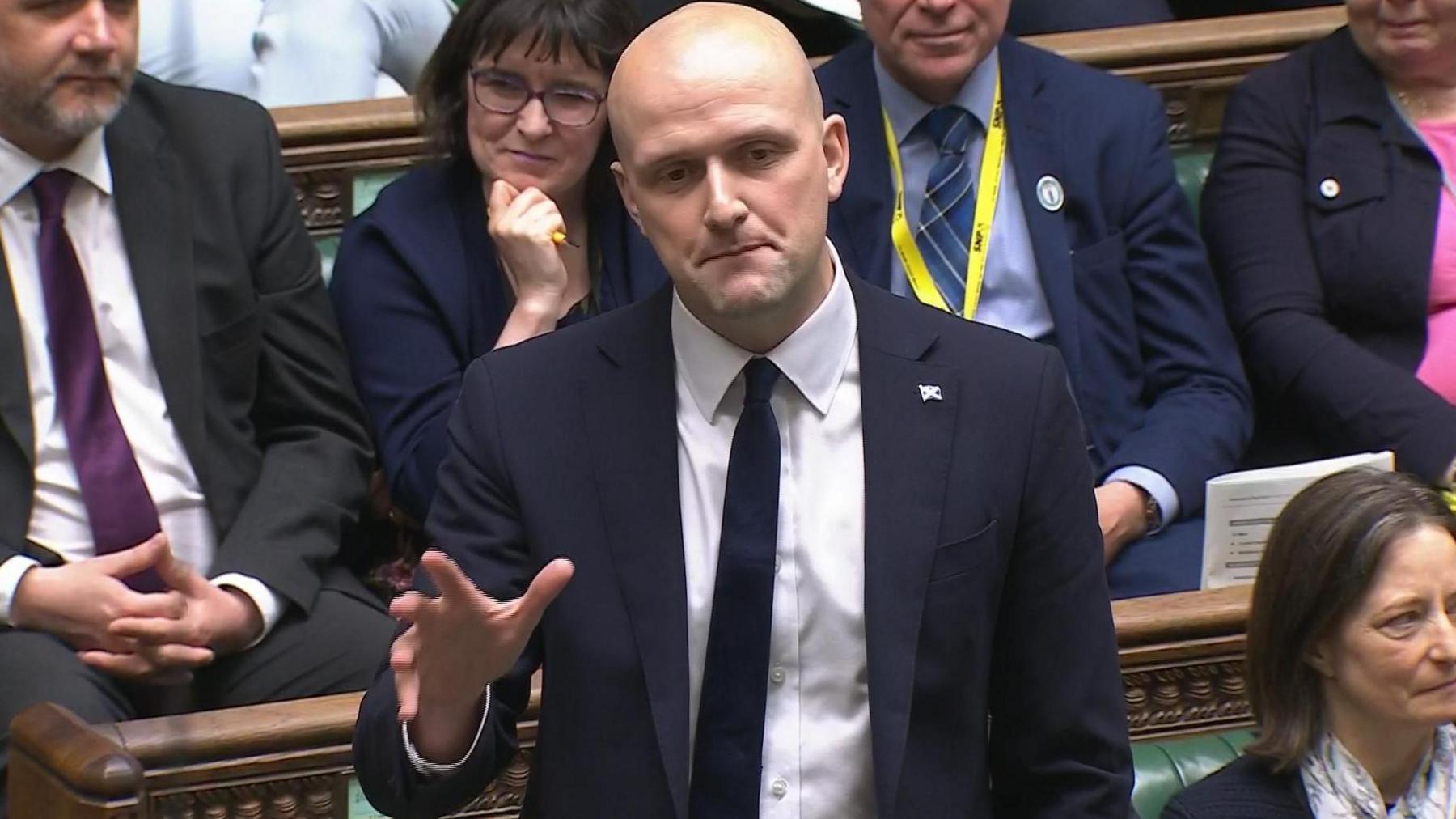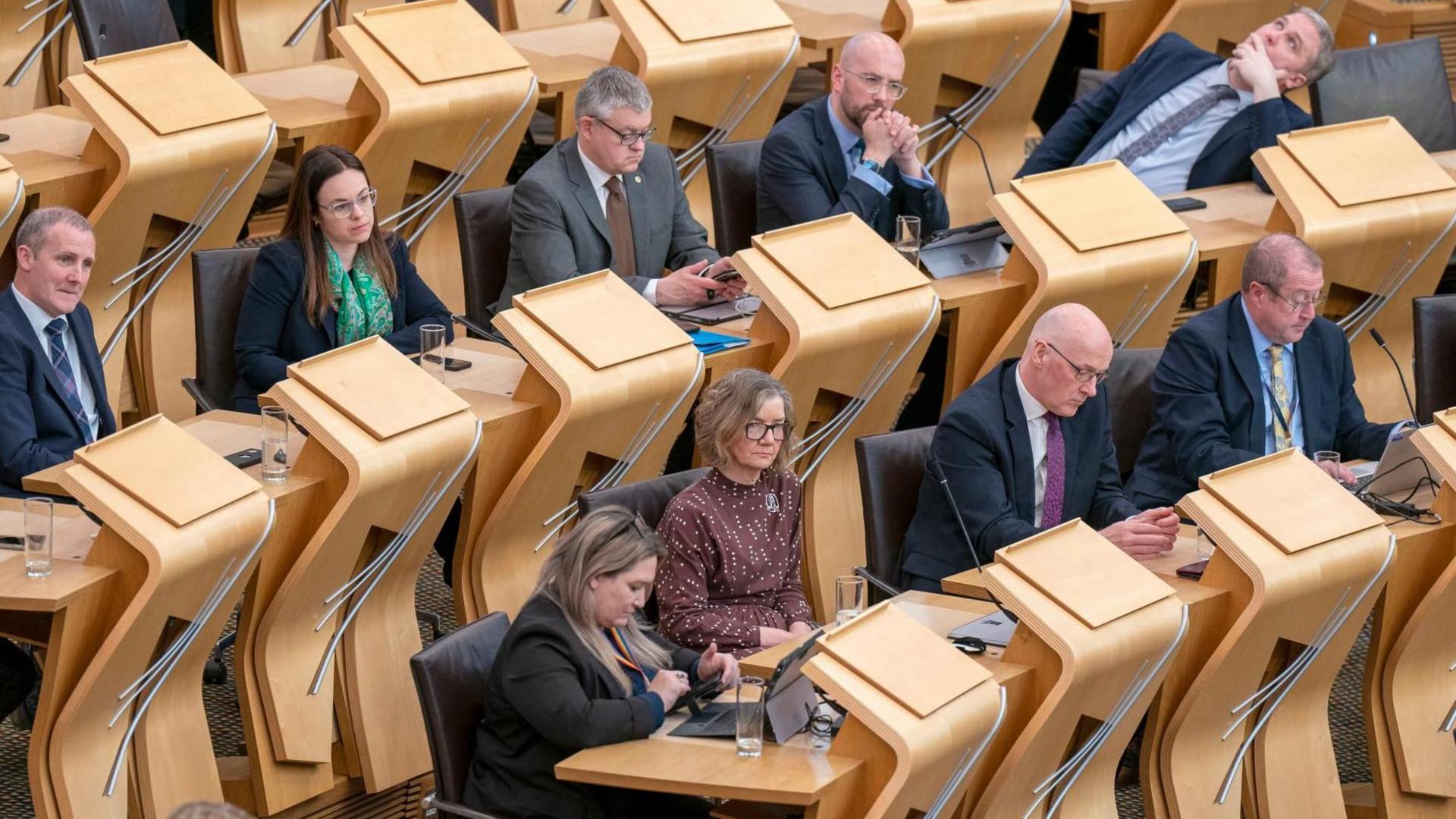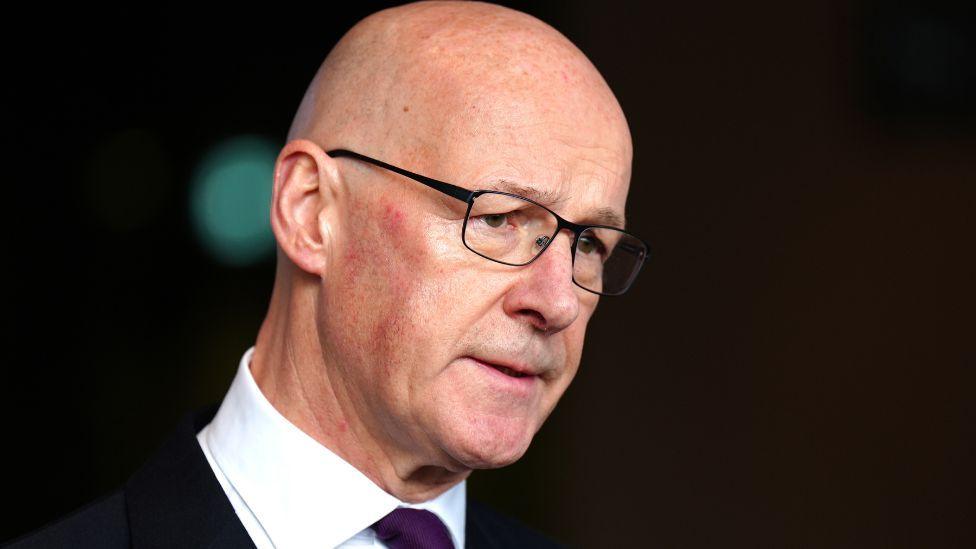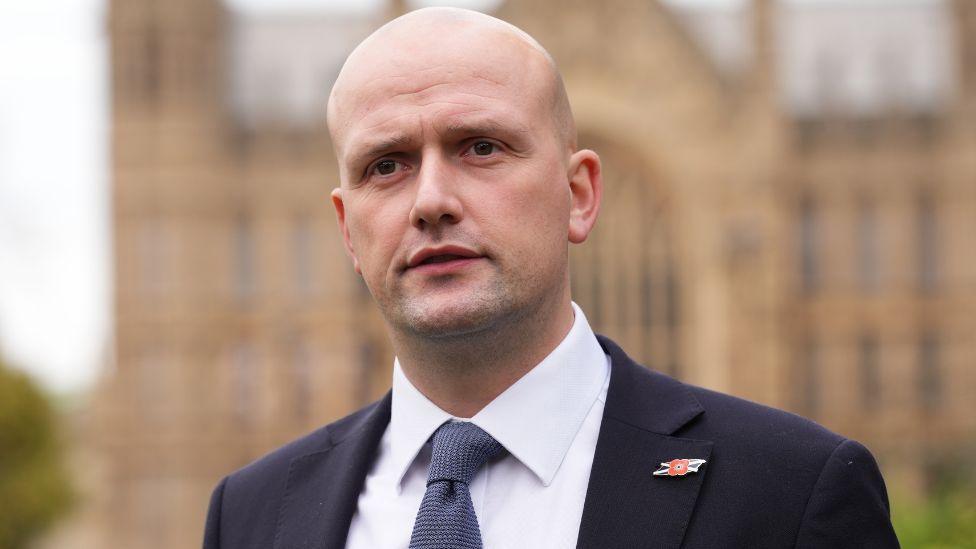Will more SNP MSPs face challenges from within their own party?

Stephen Flynn has announced that he wants to be the Holyrood candidate for Aberdeen South and North Kincardine in 2026
- Published
Every politician knows that the next election could result in them losing their job.
But in the SNP it can come even sooner than that.
Sitting SNP politicians – at Holyrood and Westminster – can face internal challenges to be a candidate again at every election, even if they’re already doing the job.
This came under the spotlight last week when the party’s Westminster leader, Stephen Flynn, announced that he wanted to be the Holyrood candidate for Aberdeen South and North Kincardine in 2026.
That’s already represented by his SNP colleague Audrey Nicoll, so now local members will choose between the two (and anyone else who chucks their hat in).
Some senior figures within the SNP expect more sitting MSPs to face similar challenges.
It’s important to stress that this is nothing new. At every election SNP incumbents are challenged from within the party.
There are even sitting Scottish government ministers whose Holyrood careers began when they took on a sitting SNP MSP.
And other parties have similar internal mechanisms for contests.
Opposition MSPs back move to ban 'double jobbing'
- Published18 November 2024
Flynn: Reaction to 2026 Holyrood bid 'not pleasant'
- Published17 November 2024
But could the Holyrood selection process this time around see a bit more yellow-on-yellow?
Remember, dozens of SNP MPs lost their Westminster seats at the recent general election in July. There’s an expectation that some of them may try and make the move to Holyrood when the opportunity comes along.
A number of them have applied to be vetted by party HQ. This is the first step when it comes to running as a candidate.
There are multiple routes into Holyrood. We’d expect a number of SNP figures to retire, and the Scottish Parliament’s electoral system also returns MSPs on the regional list.
But if the right sort of vacancies don’t come up naturally, then that leaves some wannabe MSPs with one option – to challenge an incumbent.
As one MSP put it to me: “We’ve got more politicians than seats we’re going to win.”
Plenty of SNP figures think that this is a positive party trait, insisting that it’s healthy for politicians to justify their re-selection.
A “safety valve” that stops them getting too comfortable in their job - that’s how one MSP put it to me.
Another echoed that sentiment, but expressed concern about an “old-school Westminster style” of SNP politician making their way to Holyrood at the next election.
They seemed to have a concern that those who’ve spent time in the House of Commons have been moulded by a political culture that’s a bit more combative than Holyrood’s.
Though it should be pointed out that others have made the Westminster-to-Holyrood switch and seem to have settled in well.

Will other SNP MSPs face internal challenges for their seats like Audrey Nicoll (front, second left)?
So, if more challenges are to be expected, are we likely to see sitting MSPs losing out?
One party insider told me there’s “frustration” in the SNP membership as independence feels further away than in previous years, and therefore the party faithful are up for a change of personnel.
They went as far as saying some MPs who recently lost their seats would be an “upgrade” on some of those who are currently sitting on the benches at Holyrood.
But one former SNP MP I spoke to dismissed the idea that those who left Westminster in July have suddenly turned their attention to Holyrood.
They pointed out that many now have new roles outside elected politics, and are relishing the fact that they’re off the parliamentary treadmill.
So with all this in mind, why has Stephen Flynn’s recent announcement ruffled so many feathers in the party?
Allies of Mr Flynn suggest that other MSPs are angry at the prospect of facing similar challenges themselves.
But some MSPs insist it’s more to do with his plans to sit at both Westminster and Holyrood simultaneously, rather than his decision to challenge a colleague.
And there’s a sense in the SNP that any contests should be undertaken sensitively and respectfully. Not all in the party feel that the Aberdonian MP achieved that tone when he announced his decision to run.
Reflecting on Stephen Flynn’s challenge to Audrey Nicoll last week, the SNP MSP George Adam told BBC Scotland News that SNP politicians were "all meant to be very loyal."
With more challenges expected, that’s a theory that could well be tested in the weeks and months ahead.
Related topics
- Published13 November 2024

- Published12 November 2024
